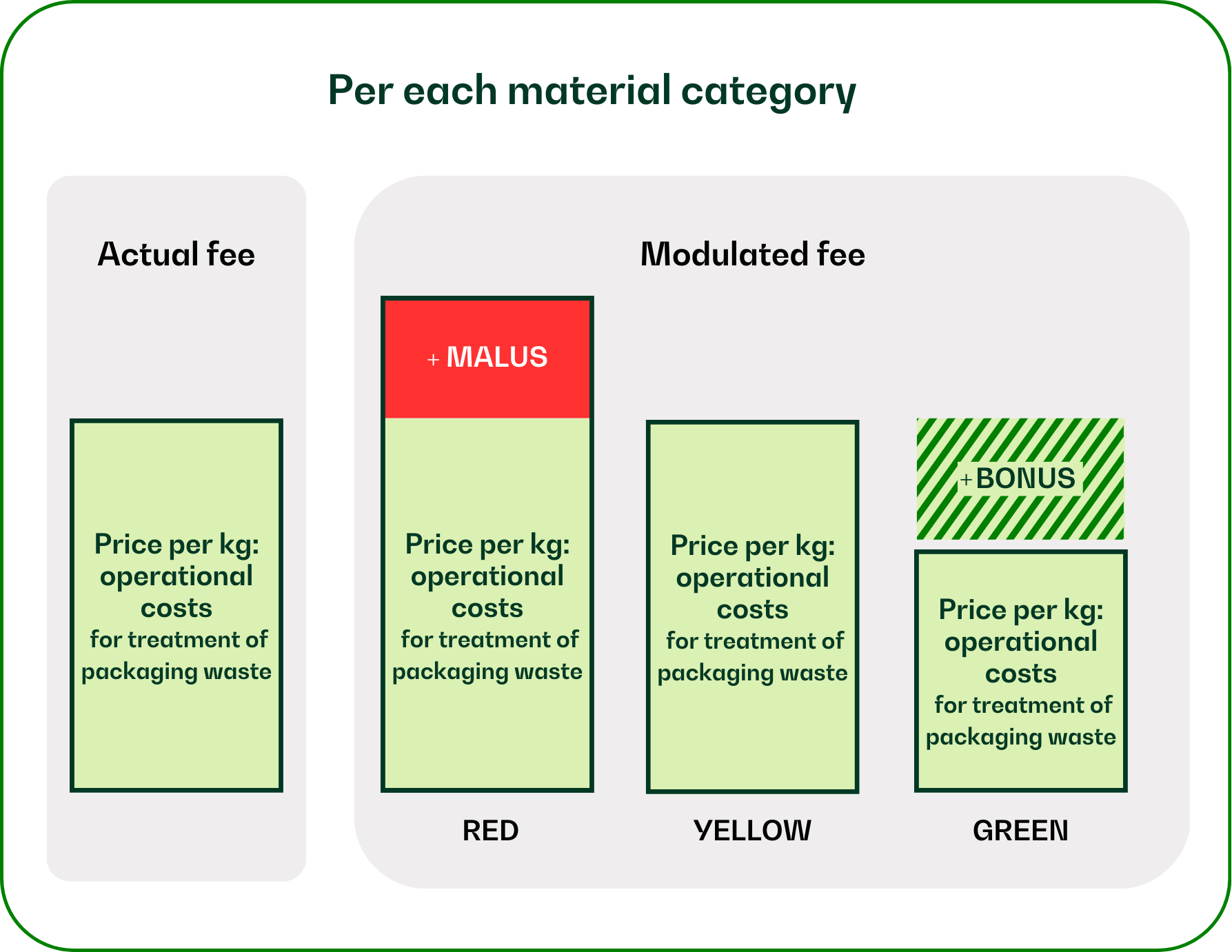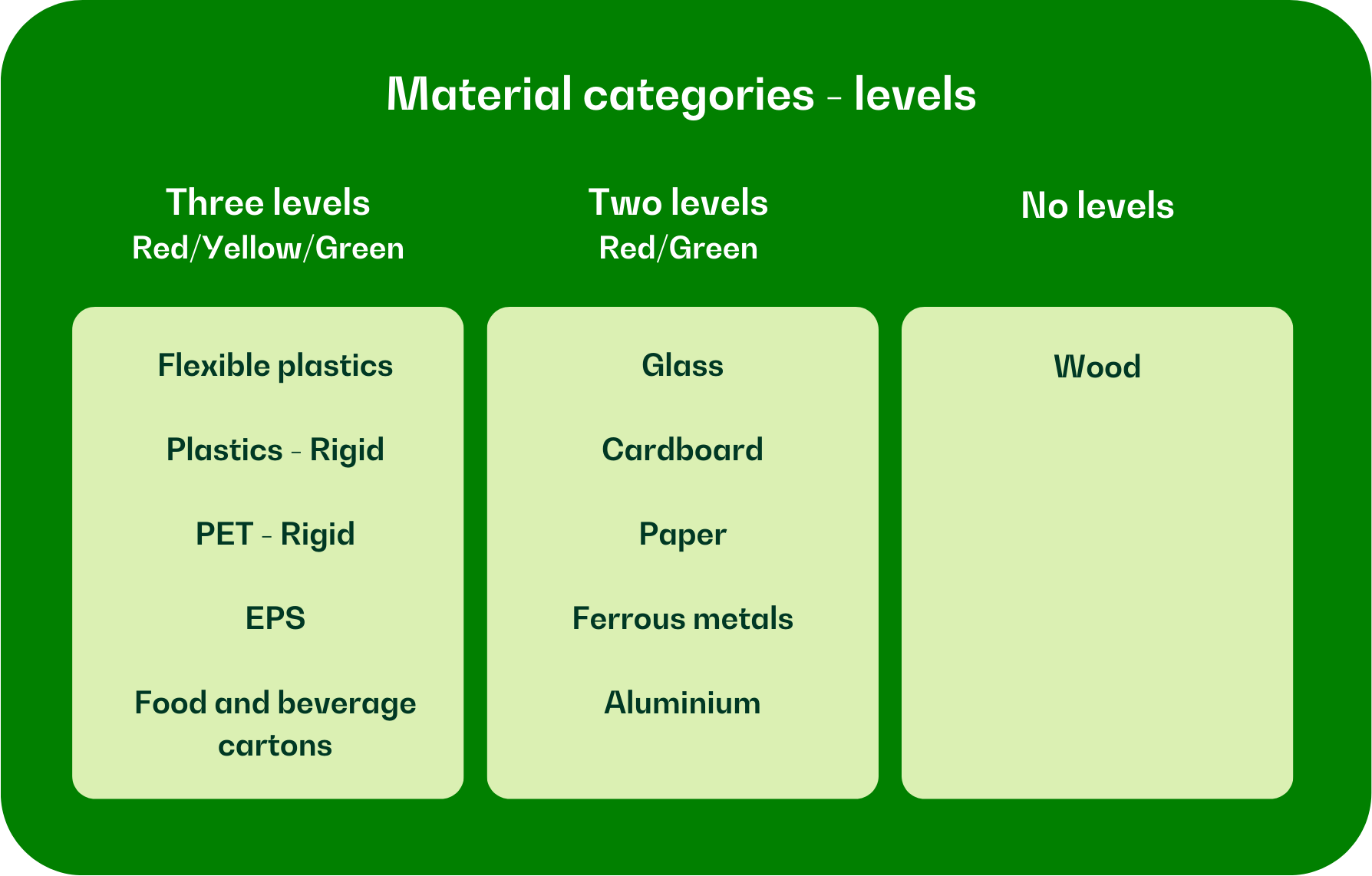Reporting 2025 - eco-modulation
It will be a requirement that the costs that companies must cover from the time the producer responsibility comes into force will be eco-modulated. This means that companies will pay less for packaging that can be reused or recycled.
The eco-modulation must ensure cost neutrality for each individual material category, so that the companies in a material category do not pay more or less than the actual costs of waste treatment.
The legislation with the design requirements for the eco-modulated contributions was submitted for consultation on 20 September 2024 - find it here (phase 2 - the Packaging Order).
Read the Danish Environmental Protection Agency's guide to determining the environmentally graduated contributions here
Bonus/malus model
The eco-modulation will be a bonus/malus model, where the companies, who market packaging with low recyclability, must pay a larger part of the costs.

Malus
The producer Responsible organisation (PRO) must give each producer, who markets one or more packagings in the high level a malus (extra cost) in the shape of 35% of the individual producer's calculated operational costs for waste management of all of its products which are in the high level (red).
Bonus
The PRO must use the additional income from the malus for red-level packaging in a given material category to cover the operational costs for waste management of green-level packaging within the same material category.
For the material categories where there is a yellow level, the individual producer pays the actual operational costs for the waste management of the packaging.
However, companies must cover at least 20% of the operational costs.
Read more about the requirements which apply in other countries here.
Material categories and levels
The eco-modulation is based on 10 material categories, each of which is divided into levels (rates).

In addition, data on available packaging made of textiles, porcelain, cork, ceramics, and other materials must be reported. These five material categories do not have to be graduated and initially there is no charge for waste management.
